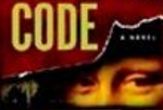Voice of Reason: Exposing the Da Vinci Hoax

The record bestseller, Dan Brown's 2004 The Da Vinci Code, has renewed interest in the quest for the Holy Grail, restyling the medieval legend for a public that often gorges itself on a diet of pseudoscience, pseudo-history, and fantasy.
Unfortunately, the book is largely based on obscure, forged documents that have now deceived millions.
The adventure tale begins with Paris police summoning Robert Langdon, an Indiana Jones type, to the Louvre to view the corpse of curator Jacques Saunier. Saunier has been murdered in bizarre circumstances. Soon Langdon and beautiful cryptanalyst Sophie Neveau lead readers on a page-turning treasure hunt across France and England, propelled by a series of puzzles and clues. Along the way, the pair search for a hidden "truth" that challenges mainstream Christianity. Brown drew heavily on the 1982 bestseller, Holy Blood, Holy Grail, written by Michael Baigent, Richard Leigh, and Henry Lincoln (1996), with Lincoln as the conceptual author.
Brown's novel is predicated on a conspiracy theory involving Jesus and Mary Magdalene. Supposedly the old French word sangreal is explained not as san greal ("holy grail") but as sang real ("royal blood"). Although that concept was not current before the late Middle Ages, Holy Blood, Holy Grail argues that Jesus was married to Mary Magdalene, with whom he had a child, and even that he may have survived the Crucifixion. Jesus' child, so the "non-fiction" book claims, thus began a bloodline that led to the Merovingian dynasty, a succession of kings who ruled what is today France from 481 to 751.
Evidence of the holy bloodline was supposedly found in a trove of parchment documents, discovered by B?renger Sauni?re, the priest of Rennes-le-Ch?teau in the Pyrenees. The secret had been kept by a shadowy society known as the Priory of Sion which harked back to the era of the Knights Templar and claimed among its past "Grand Masters" Leonardo da Vinci, Isaac Newton, and Victor Hugo.
Brown seizes on Leonardo--borrowing from "The Secret Code of Leonardo Da Vinci," chapter one of another work of pseudo-history titled "The Templar Revelation." This was co-authored by "researchers" Lynn Picknett and Clive Prince, whose previous foray into nonsense was their claim that Leonardo had created the Shroud of Turin--even though that forgery appeared nearly a century before the great artist and inventive genius was born!
Among the "revelations" of Picknett and Prince, adopted by Dan Brown in The Da Vinci Code, is the claim that Leonardo's fresco, Last Supper, contains hidden symbolism relating to the sang real secret. They claim, for instance, that St. John in the picture (seated at the right of Jesus) is actually a woman--Mary Magdalene!--and that the shape made by "Mary" and Jesus is "a giant, spreadeagled 'M,'" supposedly confirming the interpretation. By repeating this silliness, Brown provokes critics to note that his characterizations reveal ignorance about his subject.
Sign up for the Live Science daily newsletter now
Get the world’s most fascinating discoveries delivered straight to your inbox.
Alas, the whole basis of The Da Vinci Code--the "discovered" parchments of Rennes-le-Ch?teau, relating to the alleged Priory of Sion--were part of a hoax perpetrated by a man named Pierre Plantard. Plantard commissioned a friend to create fake parchments which he then used to concoct the bogus priory story in 1956. (See Carl E. Olson and Sandra Miesel, The Da Vinci Hoax, 2004.)
Of course, Dan Brown--with the authors of Holy Blood, Holy Grail and The Templar Revelation--was also duped by the Priory of Sion hoax, which he in turn foisted onto his readers. But he is apparently unrepentant, and his apologists point out that The Da Vinci Code is, after all, fiction, although at the beginning of the novel, Brown claimed it was based on fact. Meanwhile, despite the devastatingly negative evidence, The Da Vinci Code mania continues. Perhaps Brown should go on his own quest--for the truth.
Joe Nickell is Senior Research Fellow of the Committee for the Scientific Investigation of Claims of the Paranormal and "Investigative Files" columnist for the organization's science magazine, Skeptical Inquirer.
Related Stories
- Mock Trail for 'Da Vinci Code'
- Possible Da Vinci Workshop Uncovered
- Fresh Claim that Shroud of Turin is Fake
- The Viaduct Virgin
Why is yawning contagious?
Scientific consensus shows race is a human invention, not biological reality









